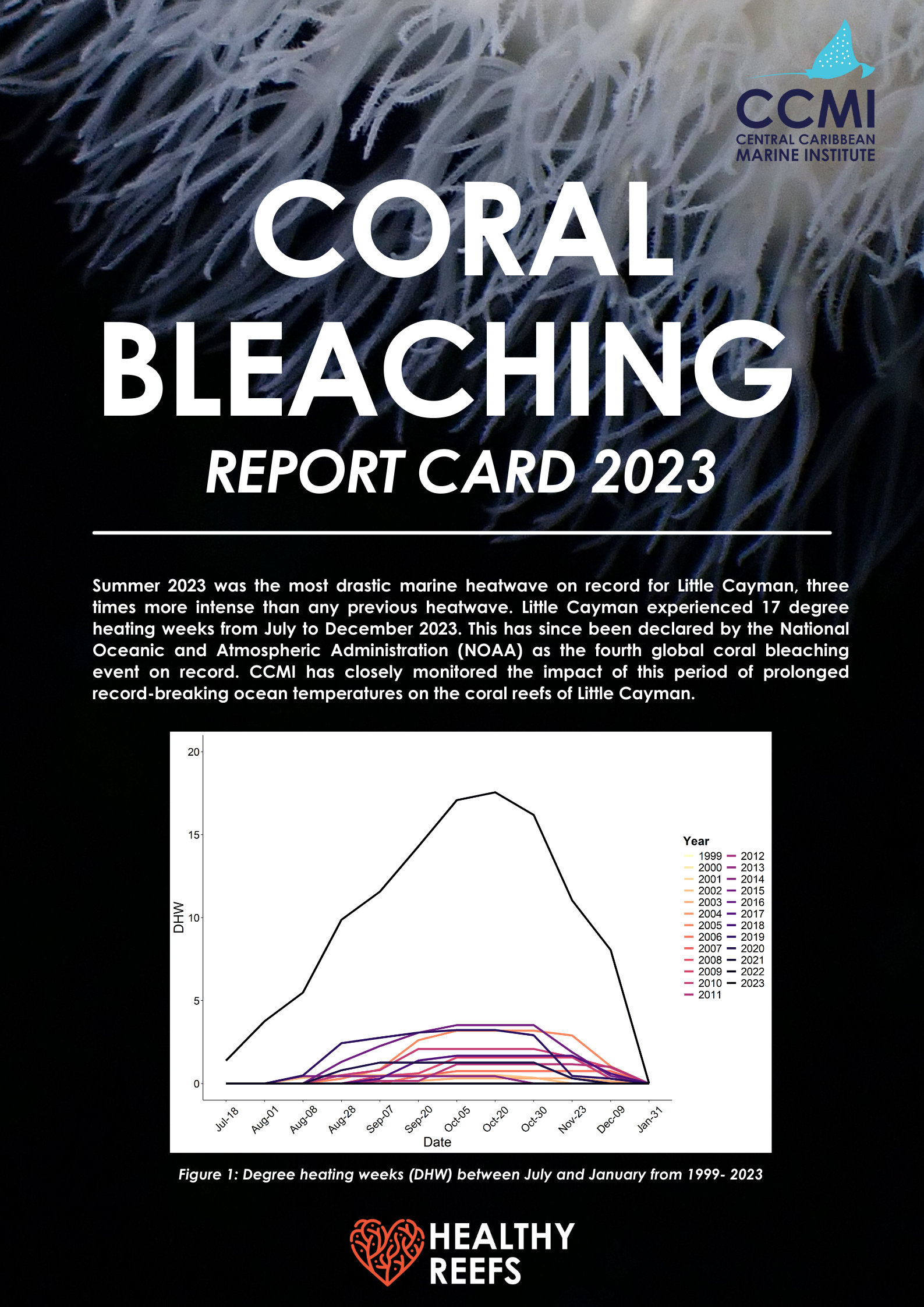CCMI shares the impacts of the 2023 marine heatwave on Little Cayman coral reefs
The summer of 2023 brought extreme temperatures, both on land and in the ocean. The water temperature in Little Cayman reached record highs in the longest and most severe marine heatwave on record. Since the start of the coral bleaching in July 2023, CCMI’s researchers have been closely monitoring the extent of the bleaching across Little Cayman and the impact this is having on the coral reef ecosystem.
The 2023 Coral Bleaching Report Card reveals the severe levels of coral bleaching in Little Cayman in 2023 and subsequent mortality levels, how this differed by species, and factors that may influence how these reefs recover in the coming years.
Before the bleaching event, coral cover in Little Cayman remained at approximately 20%, compared to approximately 10-15% regionally. CCMI’s pre-bleaching 2023 Healthy Reefs monitoring showed that 90% of these reefs were in good to very good condition. This higher coral cover, along with higher species diversity and healthy fish populations, particularly herbivores, may mean that Little Cayman’s reefs show better long-term recovery than reefs in poorer health. Corals also show improved recovery from disturbance without the added pressures from local threats such as pollution and overfishing, which Little Cayman’s reefs are protected from. This provides hope for the recovery of these reefs, but there next year or so will be pivotal.
The reefs of Little Cayman have always been unique in many ways. Twenty-five years of CCMI’s monitoring data show above average health of corals, with no reefs recorded as in poor health in 2022 or 2023, and stable levels of coral cover, despite regional decline. Although no one can say for certain how these reefs will recover and fare in the future as climate change impacts intensify, we can say that historically, they have shown stability while other reefs in the Caribbean have recorded decline. The comparably higher species diversity and coral cover suggest that this could be a crucial area of hope for re-seeding degraded reefs and increasing regional reef resilience through the challenging years ahead for coral reefs.
Now more than ever, is the time to support these vulnerable ecosystems before it is too late. CCMI’s cutting-edge research and conservation, including our mesophotic reef research and science-based restoration, will be crucial to support the recovery and adaptation of these reefs in the face of the ever-increasing threats from climate change.
Read more about CCMI’s research and restoration here.
Review the 2023 Coral Bleaching Report Card here.
BACK
 CONTACT
CONTACT gallery
gallery facebook
facebook instagram
instagram youtube
youtube twitter
twitter